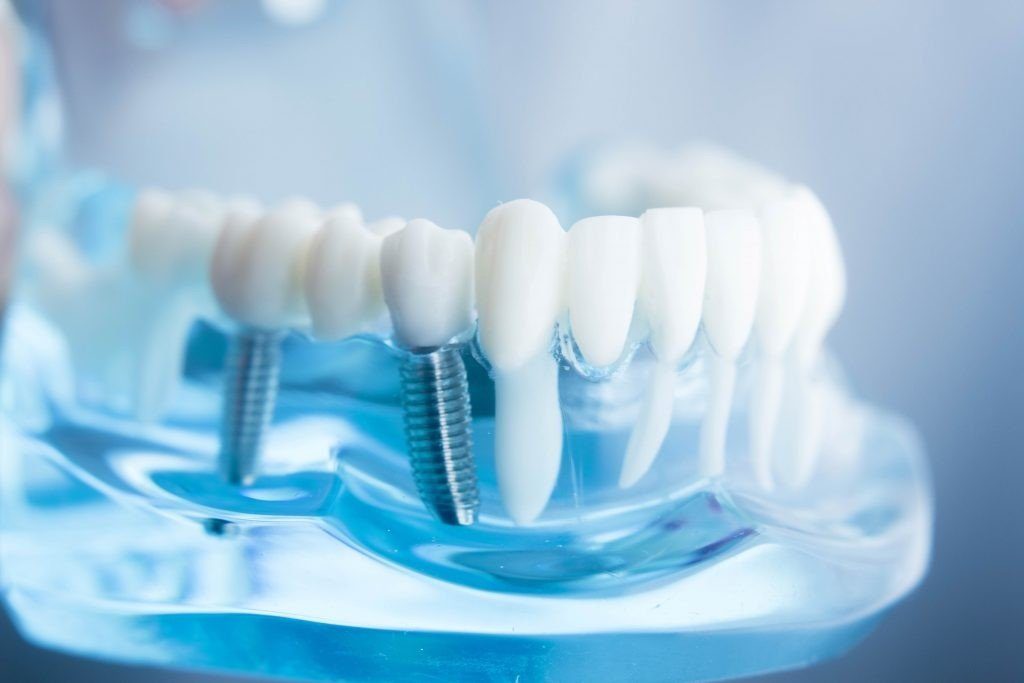If you’ve got missing or loose teeth, you might wonder what type of replacement option is available for you. Well, you may have heard about dental implants; the reviews are quite enticing. Unlike a denture, an implant does not limit the type of foods you would eat. Also, you do not have to go for a replacement after a few years.
Now, you may ask, “Are dental implants worth it?” Keep reading to find out.
What Are Dental Implants?
They are surgical replacements for missing teeth. Implants are made of titanium and they fuse with the jawbone; therefore, they won’t slip, cause damage to your bone, or make noise like dentures or fixed bridgework. Also, the materials do not decay like the natural teeth that anchor regular bridgework.
Generally, you could get a dental implant if you:
- Do not smoke tobacco.
- Can commit some months to undergo the process.
- Want your speech to improve.
- Are unwilling or unable to wear any denture.
- Do not have medical conditions that could affect the healing of your bone.
- Have good oral tissues.
- Have enough bone to anchor the implant.
- Can undergo bone grafting.
- Have a mature jawbone.
- Have one or multiple missing teeth.
You may want to visit eschenbachdental.com/implants/ to know the types of dental implants available.
What Happens After the Loss of a Tooth?
If you plan on getting a dental implant, you need to find out what could happen after the loss of a tooth. When your tooth is missing, the chewing power needed to support the jaw bone’s density will be missing.
Over time, this area will deteriorate. And bone loss could result in shifting teeth. This could ruin costly orthodontic treatments. It could also cause more tooth loss.
Furthermore, the missing tooth will leave a gap that will become a breeding space for the build-up of bacteria. This will cause tartar and plaque to develop faster on the teeth adjacent to the gap. The result of this is accelerated tooth loss and further decay.
However, dental implants serve as a root for a prosthetic tooth. This will provide enough pressure for chewing and biting to sustain the jaw bone’s density. When this gap is closed, the density of the jawbone is retained, thereby, reducing the need for more costly treatment later.
Things to Expect During an Implant Procedure

A dental implant is a bit more complex compared to bridges or dentures. This is due to the fact that you need more interventions such as bone grafting, treatment of gum disease, or additional tooth extraction.
If you plan on replacing just one tooth, your dentist must make sure that your jaw has not experienced structural changes. For the dentist to ascertain this, they will take 3D scans or X-rays and examine the surrounding gums and teeth to ensure they are in good condition. If there is an active disease in the gum, it will be treated before getting an implant.
Additionally, the dentist will create a custom plan for the restoration of the missing teeth or tooth. This will also include the treatment steps and cost implications.
The procedure for consultation is not different from when you need a support bridge to restore a whole arch or several missing teeth. If it is an arch, the implants will be placed in strategic positions along the lower and upper jaw, and then the arch will fit onto the implant. So, you do not have to fix an implant for each tooth that is missing.
However, you may extract an additional tooth to create enough space for the bridge or arch. This procedure will take place first and adequate time will be created for healing before the implant surgery takes place.
In case the density of the bone is inadequate, you need to undergo bone grafting. Bone grafts could be taken from another part of the body, synthetic materials, or cadaver donors. This graft must heal, and then fuse with the existing bone on the jaw, so it could become a solid foundation for the implant.
You may want to visit this website to see the treatment procedure.
Benefits of Dental Implants
There are several reasons why implants make sense for people who need artificial teeth. Below are the main benefits of dental implants:
1. Aesthetics
For that “Insta-ready” appearance, a dental implant is a good choice. It looks and feels like regular teeth.
2. Bone Health
Dental implants replace the root of the teeth. This implies that you may not experience bone loss and if you do, it may not be much.
3. Durability
Implants are like a permanent solution to missing teeth. This is because they fuse to the bone in the jaw and are very stable. Also, if you maintain them properly, they could last as long as the natural teeth. Dentures last for about 5 to 8 years, but implants are great for people who need a lasting solution.
4. Practical Benefits
The implant is not just for those who want to improve their smile. Since the titanium in the implant fuses to the jaw, it will not shift or fall off. Unlike dentures, your eating will be easier, and your speech will not be affected.
Are Implants Really Worth the Cost?
Initially, dental implants could be more costly than dentures. However, with time, it might be a cost-effective alternative. You have to replace dentures every 5 to 8 years since they do not provide enough biting and chewing power that is needed to retain the natural structure of the jawbone. In order to replace the denture, you have to go for another fitting.
Additionally, the titanium used in a dental implant is permanent compared to the materials used in a denture. Implants are exceptionally durable if you practice good oral hygiene. Also, they do not limit the kind of foods you can eat, do not cause problems with speaking, or slip when eating or talking.
You can care for the implants like the natural teeth. Ensure you brush as well as floss at least two times daily.
Conclusion
Are you still wondering if dental implants are worth having? We have discussed the benefits they provide. So we are of the opinion that the outcome is worth your time and the cost.
